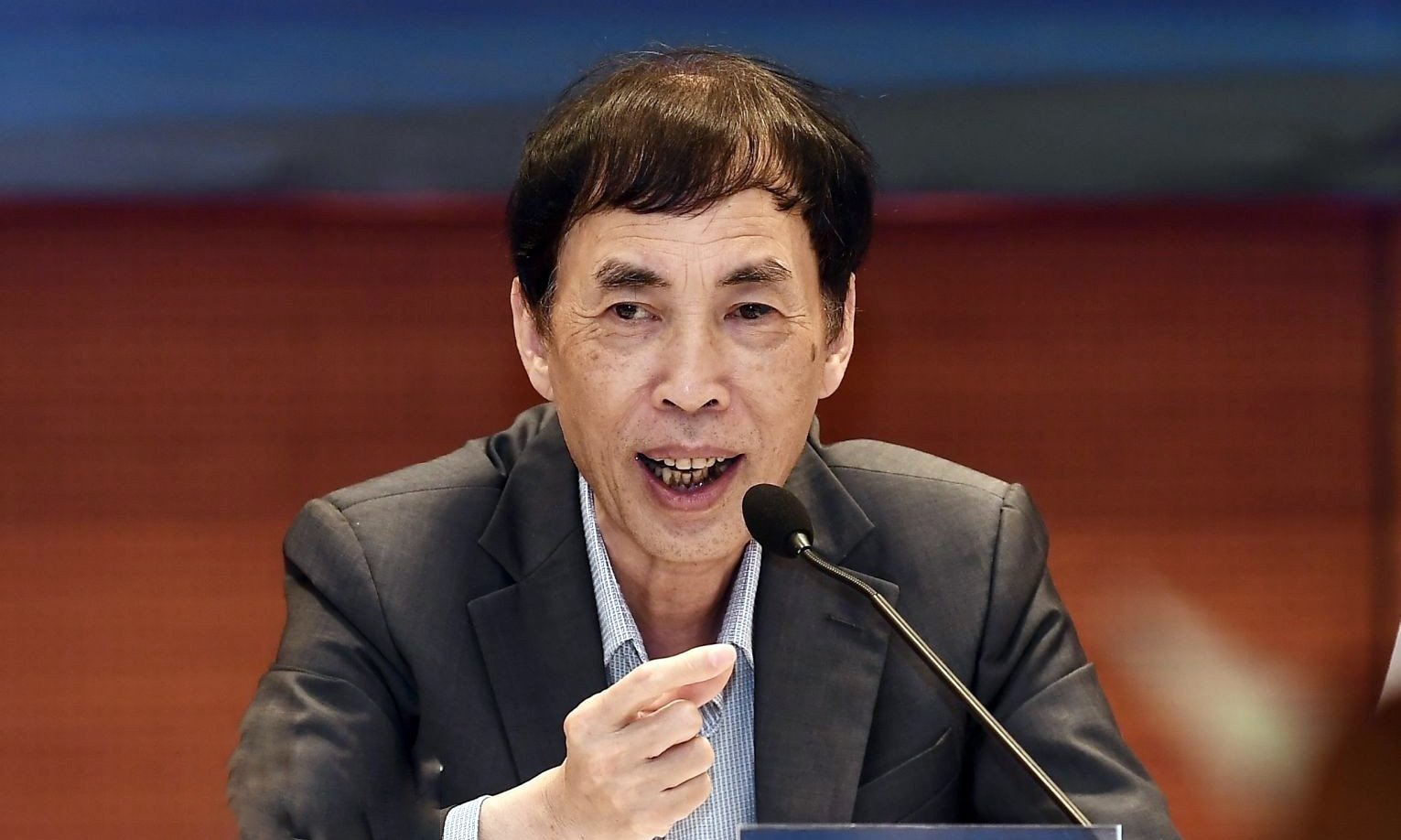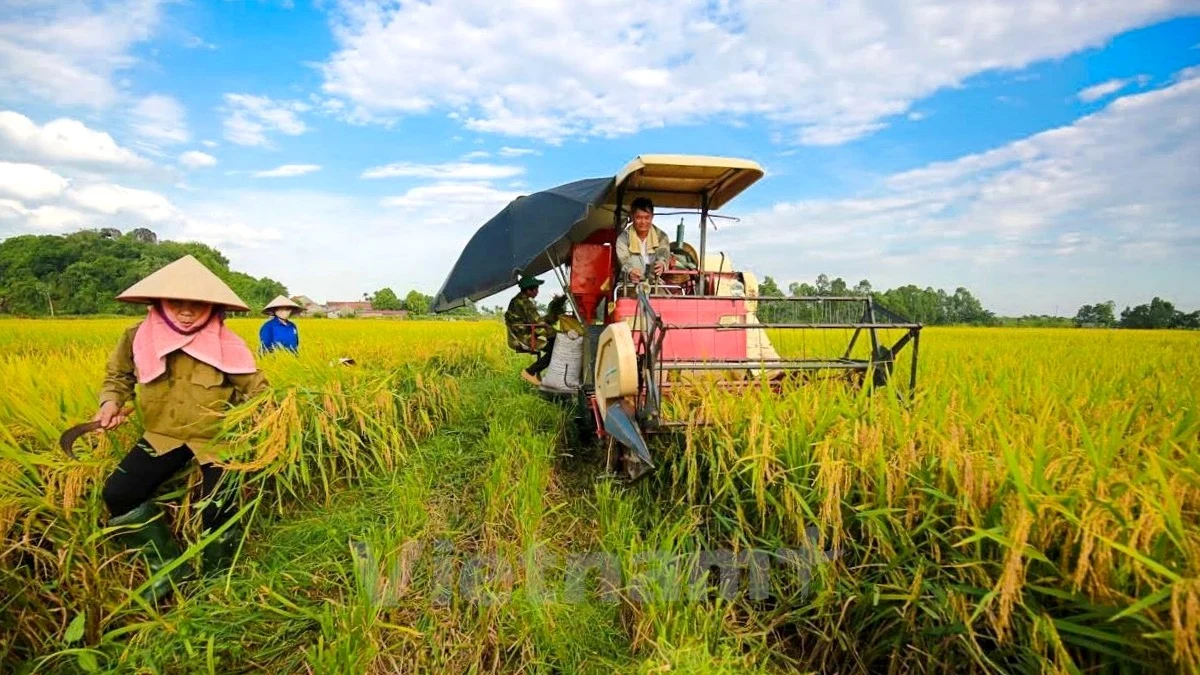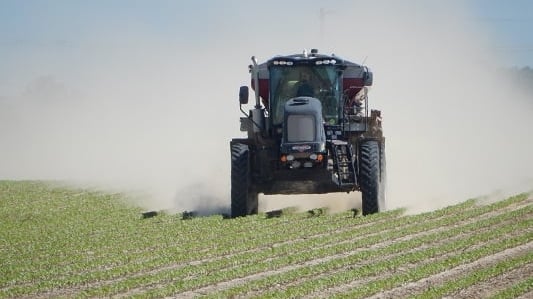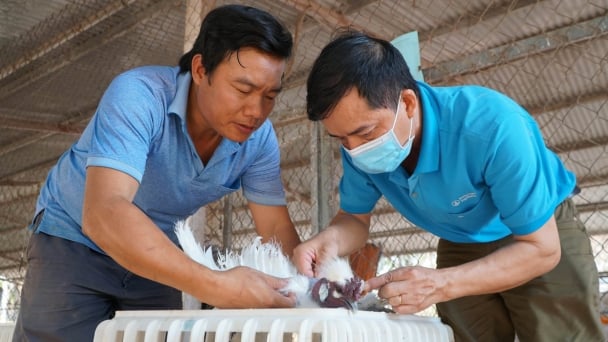May 16, 2025 | 03:42 GMT +7
May 16, 2025 | 03:42 GMT +7
Hotline: 0913.378.918
May 16, 2025 | 03:42 GMT +7
Hotline: 0913.378.918

Dr. Vo Tri Thanh urges farmers, traders, and rice export businesses to consider the long-term vision in the current circumstances.
The export price of Vietnamese rice to Israel is nearing the threshold of 620 USD per ton, a record high for many years. In response to this situation, the government has issued various directives, particularly emphasizing the issue of ensuring food security for domestic consumption.
Clarifying this concept, Dr. Vo Tri Thanh, Director of the Institute for Brand and Competitiveness Strategy (BCSI), says: "It's essential to understand the two aspects, namely ensuring both sufficiency and accessibility."
According to Thanh, "ensuring sufficiency" means guaranteeing the supply for the people, maintaining stable reserves; meanwhile, "ensuring accessibility" means people can purchase rice at a reasonably stable price, avoiding sharp price increases following the global trend, which affects inflation and macroeconomic stability.
Rice is a strategic commodity linked to the basic livelihood of the people, tied to the sustainable development of the agricultural sector and the economy. Vietnam is one of the few countries that can both meet its own rice demand and have surplus for export.
On average in recent years, Vietnam has maintained rice production at around 27-28 million tons per year. In the safest scenario calculated by the Ministry of Agriculture and Rural Development, Vietnam still has over 7 million tons of rice surplus for export.
In the first seven months of 2023, our country exported 4.83 million tons of rice and has approximately 2.6 million tons left for export in the remaining five months of the year.
Given these numbers, Dr. Vo Tri Thanh notes that countries like Vietnam not only have the responsibility to meet the needs of ensuring food security for their domestic citizens but also hold a significant role and responsibility for the global rice and food market.
"In the current context of supply difficulties, the whole world is closely monitoring the actions and moves of major rice-exporting countries, including Vietnam," Dr. Thanh remarks.
In addition to economic benefits, rice exports are also a story of national brand and reputation in foreign relations. By contributing to the effective operation of the global rice market, Vietnam will enhance its position on the international stage, particularly in terms of sustaining the sustainable development of many nations.
Many opportunities exist, but in the face of unpredictable circumstances like the current situation, numerous challenges also arise. Currently, the immediate challenge is the issue of rice procurement by businesses.
From a macro perspective, Dr. Thanh observes that the present issue in the rice market is about timing: the negotiation period, the contract signing period, the procurement timing from farmers, all have price fluctuations, as rice prices change daily and each party wants to maximize their benefits in business.
"To address this, there needs to be an enhancement of flexibility in contract negotiations, avoiding disputes and damaging market credibility. Farmers, traders, and rice export businesses should consider the long-term perspective, ensuring contract fulfillment to retain the market in the future by establishing strong, long-term relationships with partners," the BCSI Director emphasizes.

The management of rice production and export at the present time requires flexibility.
Alongside rice businesses, Dr. Vo Tri Thanh assesses that the Ministry of Industry and Trade has been striving to harmonize the interests of all parties, stabilize the market, while also aiding inflation control and macroeconomic stability. Furthermore, it seizes the opportunity to boost exports and ensure the Vietnamese rice brand.
On August 15, the Ministry of Industry and Trade issued Directive No. 07/CT-BCT, requiring subordinate units, Provincial Departments of Industry and Trade, the Vietnam Food Association, and rice export businesses to enhance market information dissemination, trade promotion, develop rice export markets, and stabilize the domestic market.
Regarding this directive, Dr. Thanh stated, "This is a swift response in management." According to him, closely monitoring the rice price situation, inspecting and controlling business establishments will help closely monitor supply sources, prices, prevent speculation, and stockpiling, which is essential at this time.
Across the country, localities are also fully committed to stabilizing the market for rice products. This is the reason that domestic rice prices have risen while remaining stable.
Translated by Nguyen Hai Long

(VAN) Vietnam's draft amendment to Decree No. 156 proposes a mechanism for medicinal herb farming under forest canopies, linking economic development to population retention and the sustainable protection and development of forests.

(VAN) In reality, many craft village models combined with tourism in Son La have proven effective, bringing significant economic benefits to rural communities.

(VAN) The international conference titled Carbon Market: International experiences and recommendations for Vietnam was successfully held recently in Ho Chi Minh City.

(VAN) According to the Project on rearranging provincial and communal administrative units, in 2025, the country will have 34 provinces/cities, 3,321 communes, wards, and special zones, and no district-level organization.

(VAN) The vice president of fertilizer with Stone X Group says the Trump administration’s tariffs are impacting fertilizer markets.

(VAN) Resolution 57 offers Vietnam a significant opportunity to narrow the global genetic technology disparity and convert its extensive genetic resources into commercial advantages.

(VAN) The Ministry of Agriculture and Environment will prioritize the implementation of five core and breakthrough solutions in science and technology, in addition to the seven groups of tasks identified in Decision No. 503.